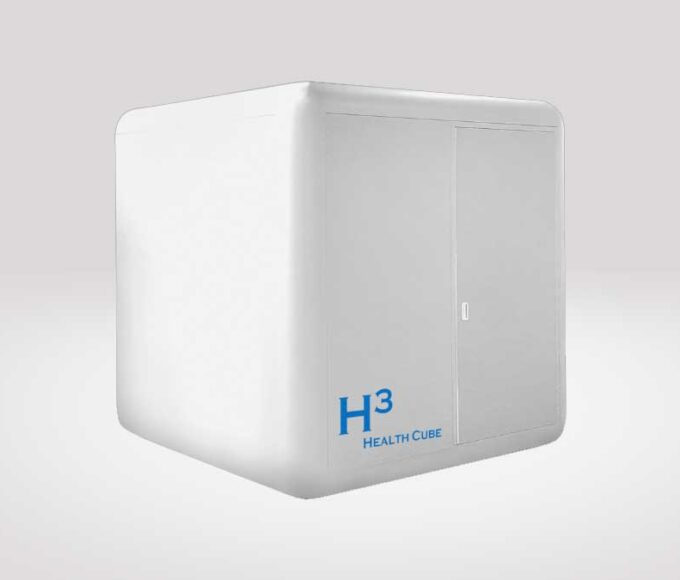- Home
- Billionaires
- Investing Newsletters
- 193CC 1000
- Article Layout 2
- Article Layout 3
- Article Layout 4
- Article Layout 5
- Article Layout 6
- Article Layout 7
- Article Layout 8
- Article Layout 9
- Article Layout 10
- Article Layout 11
- Article Layout 12
- Article Layout 13
- Article Layout 14
- Article Sidebar
- Post Format
- pages
- Archive Layouts
- Post Gallery
- Post Video Background
- Post Review
- Sponsored Post
- Leadership
- Business
- Money
- Small Business
- Innovation
- Shop
Recent Posts
New Benefits of Ozempic, Wegovy, Mounjaro, and Zepbound

Recent research has illuminated the expanding potential of drugs such as Ozempic, Wegovy, Mounjaro, and Zepbound, which were initially approved for diabetes management and weight loss. These medications, which include semaglutide and tirzepatide, have shown promise in treating a variety of other conditions beyond their primary indications. Notably, emerging evidence suggests that these drugs could play a role in managing diseases such as cancer, Alzheimer’s, cardiovascular issues, and even COVID-19.
One of the most compelling findings relates to the impact of semaglutide, a prominent GLP-1 receptor agonist, on COVID-19 outcomes. During the pandemic, studies revealed that patients taking semaglutide had a 33% lower risk of death from COVID-19 compared to those on a placebo, despite similar infection rates. This suggests that semaglutide might not only help in managing diabetes but could also offer significant protective benefits against severe outcomes associated with the virus.
In terms of cardiovascular health, semaglutide has demonstrated substantial benefits. An August study found that semaglutide significantly reduces the risk of major cardiovascular events, such as strokes and heart attacks, by 28% in individuals with heart failure. Additionally, the drug was associated with a 24% reduction in cardiovascular-related deaths and a 19% decrease in all-cause mortality. Earlier research also highlighted that semaglutide lowers the risk of cardiovascular events by 20% in obese or overweight individuals, leading the FDA to approve it for cardiovascular risk management in those with elevated body mass indexes (BMIs).
Tirzepatide, another drug in this class, has shown remarkable efficacy in reducing the risk of developing Type 2 diabetes. According to an August study, tirzepatide reduced the risk of progressing to Type 2 diabetes by an impressive 94% among overweight or obese individuals with prediabetes. This dramatic reduction underscores the drug’s potential as a preventive measure for diabetes, highlighting its effectiveness in at-risk populations.
In the realm of sleep disorders, tirzepatide has proven to be beneficial for individuals suffering from moderate-to-severe obstructive sleep apnea. Research indicates that tirzepatide significantly reduces the frequency of breathing interruptions during sleep, a key measure of disease severity. Some patients experienced such improvement that they were able to discontinue the use of continuous positive airway pressure (CPAP) machines, which are typically used to keep airways open during sleep.
Weight management drugs like tirzepatide also show promise in addressing high blood pressure. A February study reported significant reductions in blood pressure among overweight and obese patients using tirzepatide, particularly in those on higher doses. This effect adds a valuable dimension to the drug’s benefits, especially for patients managing both obesity and hypertension.
In addition to these benefits, semaglutide has shown potential in treating mental health and substance use disorders. Clinical studies indicate that obese patients taking semaglutide experienced a 50%-56% decrease in the risk of alcohol use disorder and its recurrence. Similar results were observed in patients with Type 2 diabetes, suggesting that semaglutide could be a useful adjunct in managing alcohol-related problems.
For individuals with Type 2 diabetes and chronic kidney disease, semaglutide has been linked to a 24% lower risk of major kidney-related events, including kidney failure. Furthermore, research published in JAMA Oncology highlights that GLP-1 receptor agonists like semaglutide and tirzepatide might reduce the risk of various types of cancer, including those associated with obesity, such as colorectal and pancreatic cancers.
The drug semaglutide has also been associated with a significant reduction in the likelihood of pancreatitis recurrence. Patients with a history of pancreatitis who used semaglutide experienced up to a threefold decrease in the risk of recurrence compared to those taking other medications. Additionally, both semaglutide and tirzepatide have been found to lower the risk of liver cancer and cirrhosis in patients with Type 2 diabetes and chronic liver disease.
The therapeutic benefits of these medications extend to neurodegenerative conditions as well. In a phase II trial, the older GLP-1 receptor agonist lixisenatide did not worsen motor function symptoms in Parkinson’s patients over a year, whereas those in the placebo group experienced worsening symptoms. In Alzheimer’s research, liraglutide was associated with an 18% slower cognitive decline compared to placebo, suggesting that it might offer neuroprotective benefits.
Regarding mental health, GLP-1 receptor agonists such as tirzepatide and semaglutide have been linked to a lower incidence of depression and suicidal thoughts. February studies revealed that patients on these medications were less likely to develop depression and had a reduced likelihood of experiencing suicidal ideation compared to those on non-GLP-1 treatments.
Despite their benefits, these medications are not without risks. Common side effects include gastrointestinal issues such as nausea, vomiting, and diarrhea. More serious risks involve potential increases in rare forms of blindness and severe gastrointestinal problems. Semaglutide, in particular, has been associated with a higher risk of nonarteritic anterior ischemic optic neuropathy and severe gastrointestinal complications, including bowel obstruction and gastroparesis.
The expanding evidence on the therapeutic potential of Ozempic, Wegovy, Mounjaro, and Zepbound reveals their multifaceted benefits beyond diabetes and weight management. These drugs offer a broader range of treatment options, addressing conditions from cardiovascular disease to cancer. However, their use requires careful management to balance potential benefits with the risk of adverse effects. Continued research may further establish these medications’ roles in addressing a variety of health conditions.
Recent Posts
Categories
- 193cc Digital Assets2
- 5G1
- Aerospace & Defense46
- AI37
- Arts3
- Banking & Insurance11
- Big Data3
- Billionaires426
- Boats & Planes1
- Business328
- Careers13
- Cars & Bikes76
- CEO Network1
- CFO Network17
- CHRO Network1
- CIO Network1
- Cloud10
- CMO Network18
- Commercial Real Estate7
- Consultant1
- Consumer Tech180
- CxO1
- Cybersecurity68
- Dining1
- Diversity, Equity & Inclusion4
- Education7
- Energy8
- Enterprise Tech29
- Events11
- Fintech1
- Food & Drink2
- Franchises1
- Freelance1
- Future Of Work2
- Games141
- GIG1
- Healthcare78
- Hollywood & Entertainment186
- Houses1
- Innovation42
- Investing2
- Investing Newsletters4
- Leadership65
- Lifestyle11
- Manufacturing1
- Markets20
- Media193
- Mobile phone1
- Money13
- Personal Finance2
- Policy567
- Real Estate1
- Research6
- Retail1
- Retirement1
- Small Business1
- SportsMoney33
- Style & Beauty1
- Success Income1
- Taxes2
- Travel10
- Uncategorized8
- Vices1
- Watches & Jewelry2
- world's billionaires395
Related Articles
What Healthcare Can Learn from Nvidia’s Success
The tech industry is undergoing a seismic transformation, with two of its...
By 193cc Agency CouncilDecember 16, 2024Salmonella Triggers Recalls of Costco Eggs and Cucumbers
The recent salmonella outbreak has prompted the recall of two major food...
By 193cc Agency CouncilNovember 30, 2024Bird Flu Found in Raw Milk in California, Recall Issued
California health authorities have confirmed the presence of the bird flu virus...
By 193cc Agency CouncilNovember 25, 2024UniDoc Health Launches Mobile ‘Health Cube’ for Remote Care
UniDoc Health, a Vancouver-based company, is revolutionizing healthcare accessibility with the launch...
By 193cc Agency CouncilNovember 23, 2024















Leave a comment